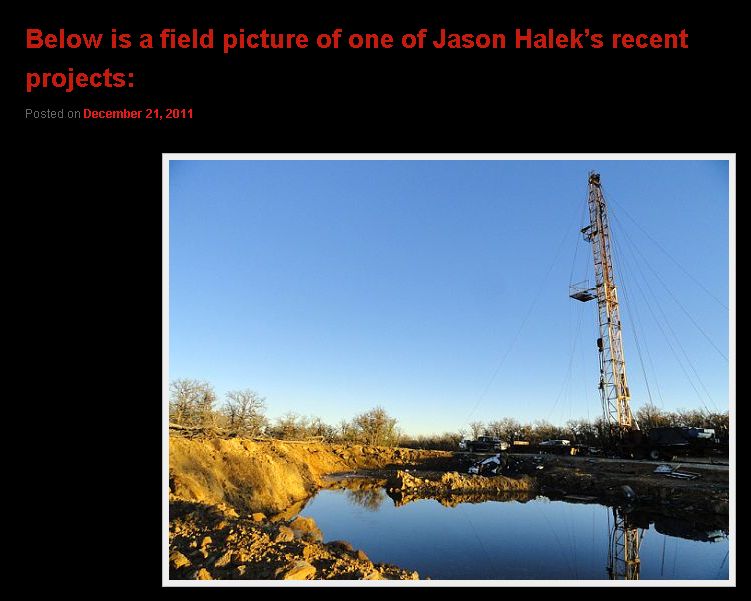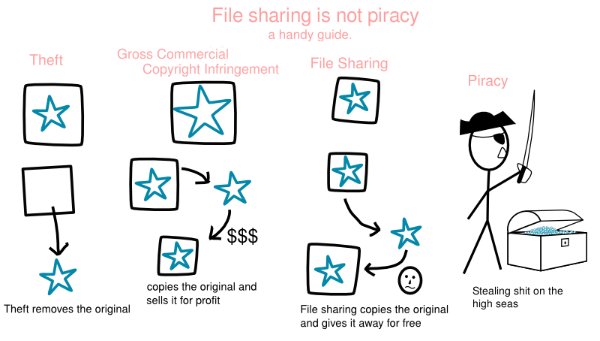Jason Halek, Website Vandal
One of my duties at work is to be an admin on a company wiki, which largely consists of cleaning up spam entries thrown in there by black-hat search engine companies. They link to their clients’ sites with the search term they’re trying to boost, and places like Google see the link as a “vote” from a respectable company like ours, for the relevance of the search terms and the target site. Usually, it’s the standard mix of pharmaceuticals, weight-loss products, etc. much like your spam folder, but the other day, I noticed an odd one. The name “Jason Halek” had been inserted into a page, linking to his name as a . net domain [For obvious reasons, I’m not going to link to any of the sites in question].
I was mildly intrigued, especially as the destination site had two articles, headlined: “Jason Halek Makes Life-Changing Impact On Texas Children” and “Jason Halek Reaches Out To Disadvantaged Children Through Halek Charities” Who was Jason Halek, and why was he so keen to make sure his name was linked to these charitable enterprises, that he apparently paid for the services of a company to deface another website?
Naturally, I started with a Google; after the site above, and what appears to be a Facebook and Twitter account (the latter mostly re-Tweets of Donald Trump!), the first result was to his name as a .org, headlined “Jason Halek’s Personal Statement”, with one entry: “Jason Halek, in his own words.” Which it certainly does not appear to be, unless Mr. Halek believes in referring to himself entirely in the third person. Here’s a sample, to show you what I mean:
Jason Halek has never, however, intentionally attempted to misrepresent himself, his business, or investments relating to his business to anyone in any way, and would never dream of doing so. Jason Halek feels strongly that he was unfairly targeted and persecuted by certain individuals and agencies to further their own agendas rather than seek the truth, although he made every effort to cooperate with inquiries and accusations with transparency, honesty, and accurate information. Jason Halek had enormous pressure placed upon himself from a government agency at a time when he did not have the financial ability to defend himself. The claims made against him were completely unfounded, and Jason Halek believes the agency and individuals within the agency were aware of this fact, but nevertheless continued to pursue it.
Ooooh… If I was curious before about Mr. Halek, now I’m downright intrigued. What had happened? The absolute vagueness of the statement There seemed to be a clue in the last couple of sentences, which said “Together they have unlocked many production secrets and will continue to produce large amounts of oil and gas that were previously thought to be unrecoverable.” But the first couple of pages of results appear to all be planted articles, since the start of October, with headlines like “Jason Halek Creates Inspirational Nonprofit Organization” and “Jason Halek Supports Wounded Veterans”. I was also expecting to see, “Jason Halek Personally Saves Kittens From Tree” and “Jason Halek Nice To Orphans: Fact”.
But, finally, after 19 entries largely comparing Mr. Halek favourably to Mother Teresa, we hit pay-dirt, and a link to a press-release from the SEC, which I will link to using the term Jason Halek
The Commission’s complaint alleges that, between June 2007 and September 2009, Jason Halek, Halek Energy and CBO Energy raised approximately $22 million from at least 300 investors nationwide by making materially false and misleading statements about the risks of the oil and gas projects, the use of investor funds, and potential returns from the investments. The complaint further alleges that Jason Halek knew these representations were false and that the vast majority of the oil or gas projects never provided the promised returns to investors.
If you have any doubts it’s worth reading the complaint against Jason Halek in full, which provides particularly damning details of the specifics.
The projects in which Halek Energy and CBO Energy offered interests were “wildcats,” meaning that they were speculative plays in areas not previously known to have significant oil or gas production. The oil and gas wells near these projects lacked any history of significant production to support the PPMs’ projections. The wildcat nature of these wells was not disclosed to investors.
The probable and possible ROt figures were formulated by a Halek Energy employee who had no oil and gas experience. The employee, with Halek’s consent, merely extrapolated data from wells he deemed comparable to the Halek Energy and CBO Energy leases. The employee’s methods were unreliable. Among other things, he did not consider, and was not qualified to evaluate, the different geological conditions that existed between the wells, which could greatly affect prospective production.
Moreover, he used data that was flatly contrary to actual results from wells that surrounded the Halek Energy and CBO Energy prospects… For example, the PPM for the King prospect projected that the wells would produce between 100-300 barrels of oil and 1,000-3,000 MCF gas per day. In fact, there were very few producing wells near the prospect – and none producing at the levels the employee projected. Additionally, Halek Energy performed no additional tests to determine if its wells could be productive. Investors were not told any of these facts.
Damn. No wonder he’s desperate to clean up his image. Desperate enough to pay black-hat companies to post fake – or at least, incomplete – accounts of his recent activities, and then vandalize third-party websites to promote these. It seems to be a concerted effort to swamp existing websites about Jason Halek like halekenergy.com, which contains nothing except “Bankruptcy Related Information”, with sentences such as, “Some investors have indicated issues with checks. These will be addressed on a case-by-case basis.” In the light of this, maybe Mr. Halek should be less concerned about giving money to charity, then paying his company creditors.
Mr. Halek does seem to have a bit of a reputation. Witness this post, apparently concerning Jason Halek, from a penny stocks forum, dating back to February 2007:
If anyone has any doubt that this is a classic pump & dump scam then consider the follow:
Try contacting Desmond. His phone is no longer in service.
Try contacting him thru the ecarfly website…goodluck on that!
Remember the last of the many, many “almost mergers” with Magnum? Well Magnum is owned by Jason Halek, who also owns Halek Auto on Harry Hines Blvd in Dallas. Has anyone reading this post ever been to Harry Hines Blvd in Dallas? I live in Dallas and Harry Hines Blvd is where all the hookers work. I’ts a very trashy part of town. Lots of porn stores, strip joints and pawn shops…oh, lets not forget the drug dealers too! Halek Auto is simply a low end used car lot. Do you really think a used car dealer in a hooker drug invested area is really going to be drilling for oil and make you rich? Ha! If you do then I have some ECFL stock to sell you.
There are some amusing bits of blowback from the flood of Halek-related content. One site – in among the motivational quotes such as “Persistence is one of the most common qualities of great achievers” – had the following.
I don’t know about you, but this image doesn’t exactly scream “oil magnate,” does it? More like “Texas swamp”. I am not a petrochemical geologist, nor do I play one on TV. But if someone came to me with an investment opportunity, giving me the chance to commit my funds to “one of Jason Halek’s recent projects,” you’d have to be blind not to see the problems. And I mean that literally, given this FBI press-release, which says that in addition to the SEC charges listed above, they “also charged Priscilla Sabado, a broker-dealer and investment adviser representative at AXA Adisors, LLC, with fraudulently selling Halek Energy interests to her clients, including a financially unsophisticated 24-year old blind man.”
I have to say, I’m impressed with the fictitious web presence generated on his behalf. It’s a whole network of imaginary friends, whose only contact is with each other – it reminds me more than little ofCatfish. For instance, a webs.com account by “Ericka Reese” has one post – it has two links, one to the .com version of Mr. Halek, the other to a posterous.com account of “Kendall Sheridan”, whose solitary entry has one link – yep, to the .com. But the exact text used by Ms. Reese turns up, verbatim, on the YouTube channel – with no videos or subscribers – belonging to a “Rose McBeal”. And my company’s was not the only wiki vandalizes: Mr. Halek shows up in a whole bunch of them, even the Alfred Hitchcock wiki, as part of the technical information for Marnie…
I have no particular opinion on Mr. Halek, but when someone is going to such extreme measures to whitewash the Internet of his presence, I feel almost obligated to dig around and find out what exactly they are trying to whitewash. In this case, it’s pretty clear what that is, and when their efforts involve vandalizing other people’s sites to try and bury the past in a blizzard of irrelevance, I have an overwhelming urge to try, in my own small way, to push back against their unpleasant techniques.
Update, September 2013
A lot more information regarding Halek has since come to light, largely explaining why he was so keen to apply Internet spin to the sites out there. EnergyWire had a particularly good article covering Jason Halek and his history, depicting a litany of shady practices from environmental violations to securities fraud. And last month, the Dallas Observer described Jason Halek as “a flim-flam man,” covering similar ground as it reported that “The 5th U.S. Circuit Court of Appeals ruled that he does in fact owe some $26 million for the disgorgement of ill-gotten gains.” A Google search for his name includes both the above stories on the front page, despite Halek’s best efforts. You can run, but you can’t hide…
Update, September 2017
Dismissing recommendations from federal prosecutors, and a defendant’s guilty plea, Federal Judge Daniel Hovland handed down a sentence for a Texas businessman that includes no jail time, just three years probation and six months in a halfway house. Jason Halek, of Southlake, Texas, was also ordered to make $71 million dollars in restitution for the environmental problems caused by his North Dakota disposal well and the fraudulent sale of investments in Texas oil and gas projects. Following the hearing, his attorney admitted there was no way Halek could ever make restitution of that amount.
Unheralded.fish
Update, May 2019
The Securities and Exchange Commission instituted this proceeding pursuant to Section 15(b) of the Securities Exchange Act of 1934 on June 7, 2018. This proceeding is based on the civil injunction entered against Respondent Jason A. Halek in a 2014 lawsuit. See OIP at 2. The order instituting proceedings (OIP) reiterates the same llegations as the 2014 lawsuit—that is, between September 2009 and June 2010, Halek operated as an unregistered broker-dealer and fraudulently offered and sold unregistered securities… I GRANT the Division of Enforcement’s motion for summary disposition. I ORDER that, pursuant to Section 15(b) of the Securities Exchange Act of 1934, Jason A. Halek is BARRED from association with any broker or dealer.
SEC Ruling












